
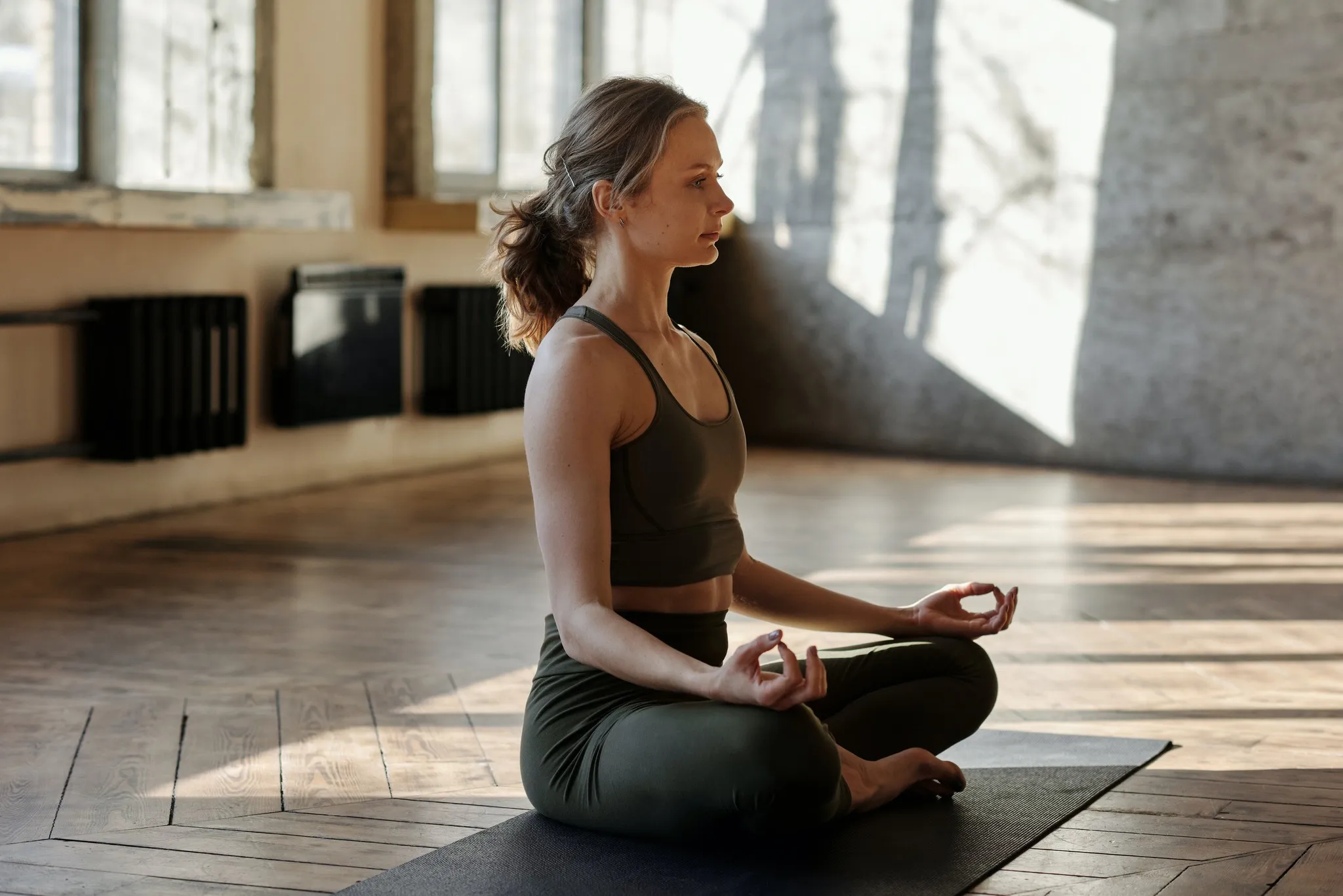
When your muscles ache, or if you’re suffering from chronic pain, lowering the inflammation in your body makes perfect sense. But did you know that keeping inflammation low can help improve your overall health? Minimizing your body’s inflammatory response can protect you from disease, keep your organs and tissue healthy, and help you feel better overall.
There are many ways to lower your inflammation, including taking NSAIDS like aspirin and ibuprofen. But if taken long term, over the counter anti-inflammatory drugs can cause damage to your digestive system. There are less harmful ways to keep inflammation low, like eating anti-inflammatory foods and avoiding those that cause inflammation to spike — like alcohol, sugar and processed food.
Yoga can also help lower inflammation in your body. With regular, weekly practice, yoga can help keep your body’s inflammatory response at a minimum. But routine practice is required for it to work, and results only come through regular commitment over time.
Yoga can lower inflammation in the body by reducing stress levels and promoting relaxation and mindfulness, which in turn can decrease the levels of the stress hormone cortisol and reduce inflammation.
In numerous studies, scientists have confirmed that regular practice of yoga can positively affect inflammatory biomarkers in your body, and in one 2019 study scientists found that the more you practice, the greater the results. By reducing the amount of certain compounds in your blood, yoga helps reduce inflammation from aging and stress.
Over time, this means your body will react to stressors with less of an impact to your overall health. This change in physiological response isn’t just good for your body, either. By reducing inflammation and stress response, you’re also improving your capacity and mental health.
[inline-CTA-1]
To lower inflammation in your body with yoga, it’s fairly simple: practice on a regular basis consistently for a long period of time. In this study, researchers pointed out that expert yoga practitioners had lower levels of inflammation than novices.
Adherence to a specific type of yoga isn’t necessary to reduce your inflammation. What’s important is a well-rounded practice that includes asanas, pranayama and meditation. If you’re just getting started with yoga, try this sequence of stress-relieving primary poses and breathing techniques to help your body lower its inflammatory response.
1. Child’s Pose
2. Downward Facing Dog Pose
3. Warrior II Pose
4. Standing Forward Fold Pose
5. Cat-Cow Pose
6. Bridge Pose
7. Legs Up The Wall
8. Reclining Fixed Angle Pose
9. Nadi Shodhana Pranayama Pose
10. Shitali Pranayama Pose
11. Corpse Pose
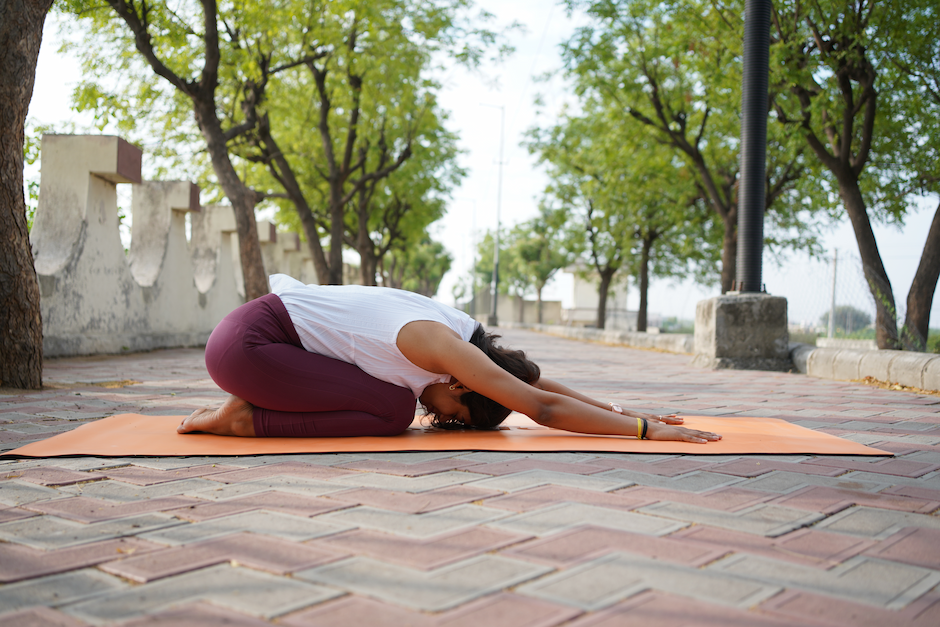
Start on your hands and knees and then lower yourself down so that your backside is resting on your heels, and your big toes are touching each other. Move your hands forward, palms down, so that your forehead is resting on the floor. Allow your spine to lengthen and your neck muscles to fully relax. Breathe deeply and mindfully while staying in this pose for 5-6 minutes.
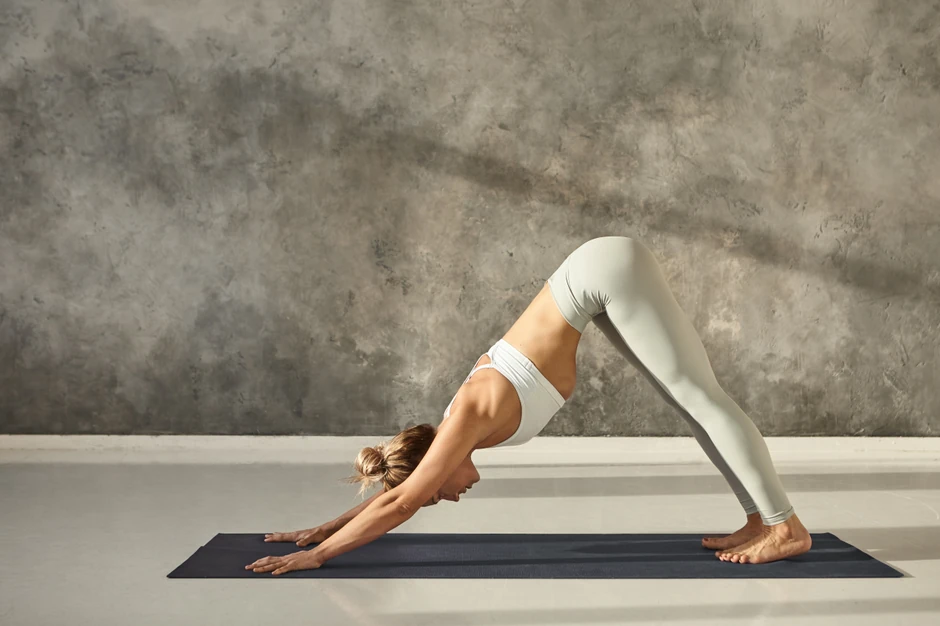
Start in a tabletop position, with your hands and knees on your mat. Push up from your hands and knees, lifting your hips until you are balanced on your hands and feet, with your body resembling an inverted “v.” Keep your head in between your arms, ears balanced over your shoulders, and stay in this pose for several breaths.
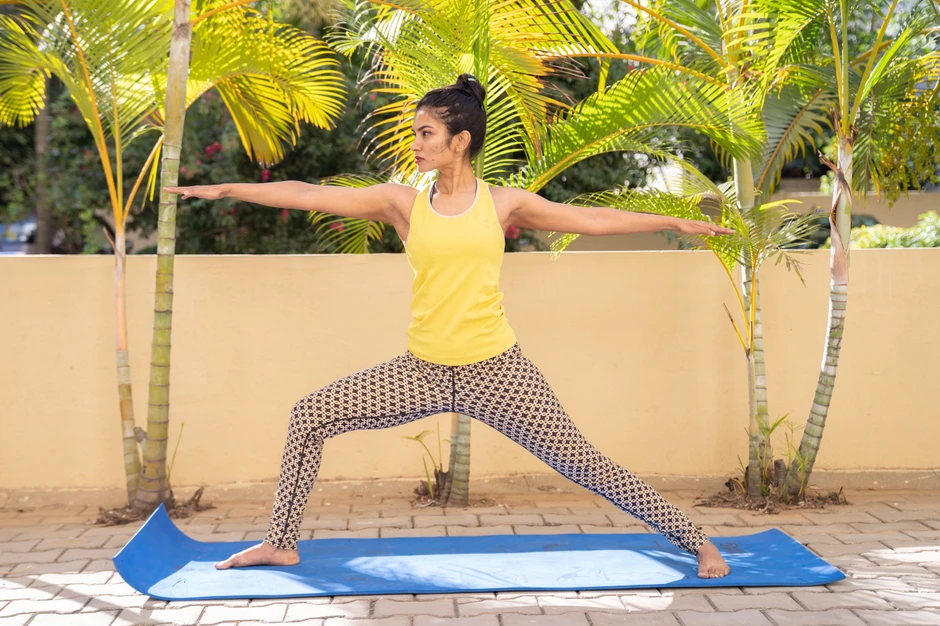
Step your right foot forward on the mat with your toes pointed forward and your right knee bent. You left foot will stay behind you, perpendicular to the mat. Keep your hips squared and arms stretched over your front and rear legs, distributing your weight evenly between both legs. Stay in this pose for 5-6 breaths.
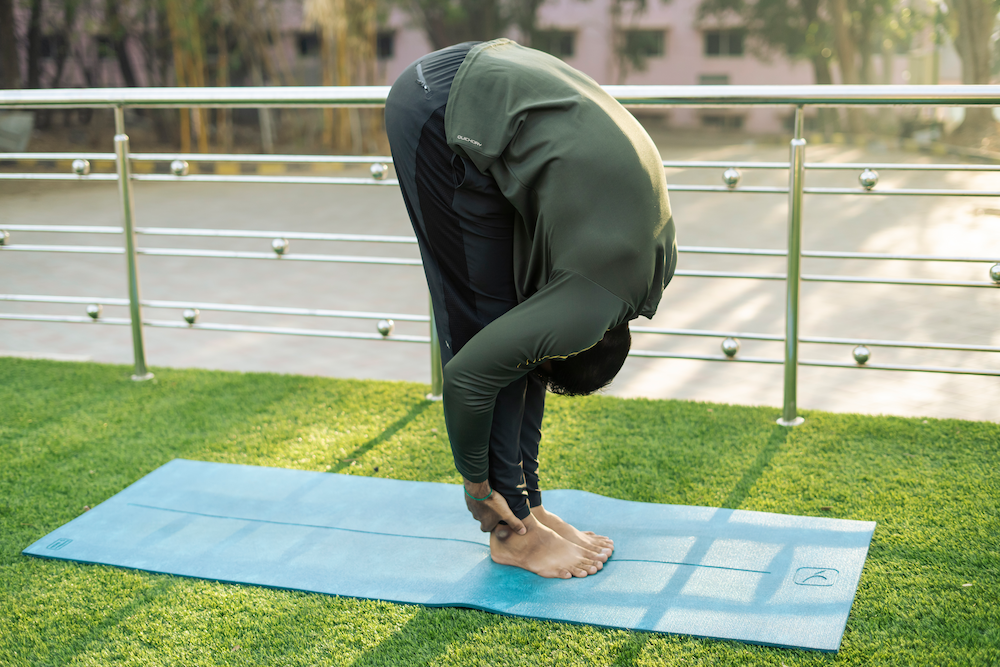
Stand at the front of your mat, feet hip distance apart. Exhale and bend forward from the waist, with your knees slightly bent and touching your hands to the floor in front of your feet. Inhale and exhale, allowing your torso to extend without rounding your back. Lengthen and soften your neck, and let the muscles of your thighs and lower back open and release any built-up tension. Hold the pose for 1-2 minutes.
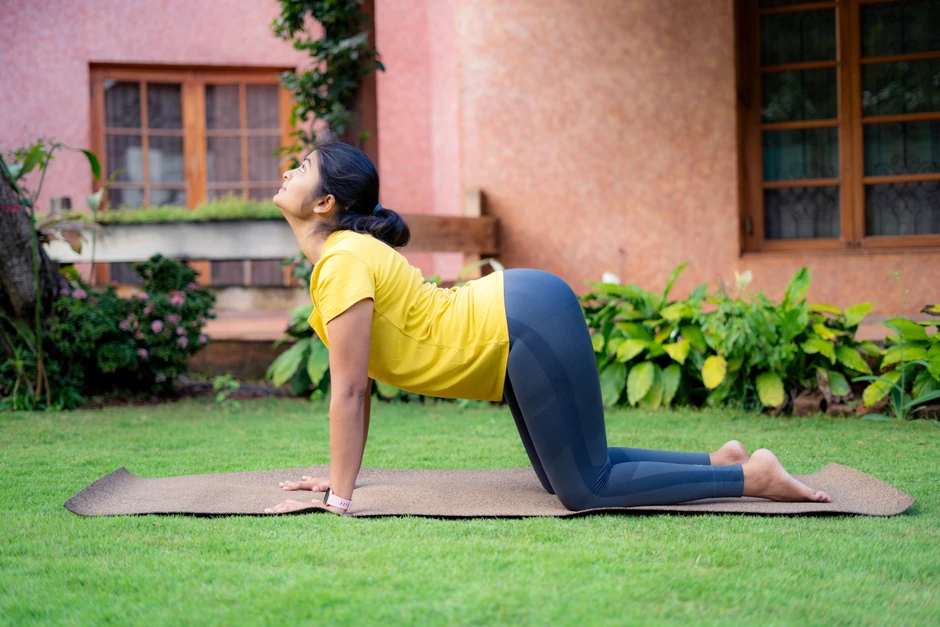
Start with your hands and knees on the floor. Inhale and look up, lifting your chin and gently arching your back. As you exhale, drop your chin and look down toward your naval as you curl your spine forward. Continue this movement 5-10 times.
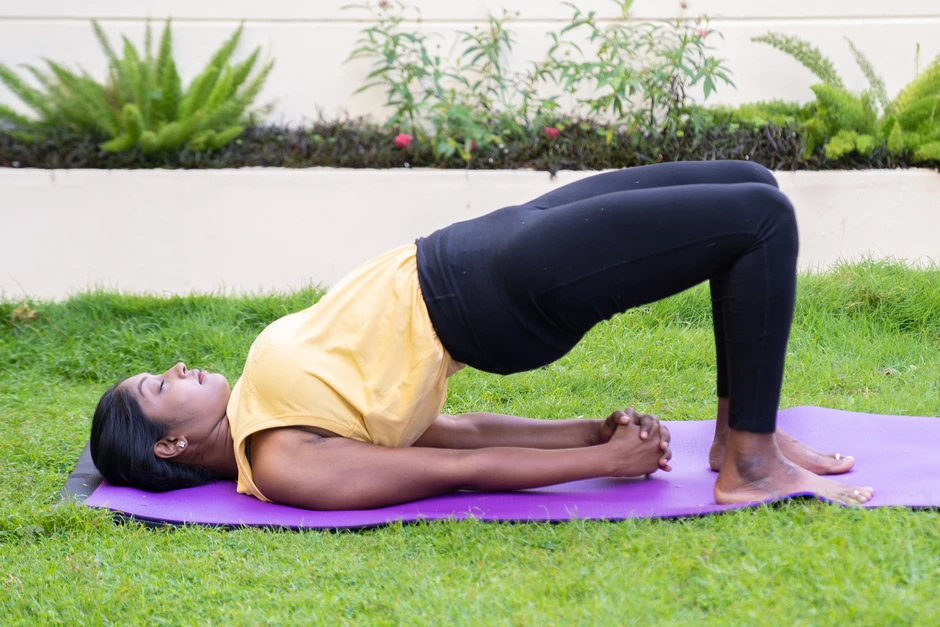
Start by lying on your back with your knees bent. On your next exhale, tuck your chin and lift your hips, being careful not to allow your knees to splay outward. Interlace your fingers on the floor underneath you and lift your hips higher, while staying in the pose for 5-10 breaths.
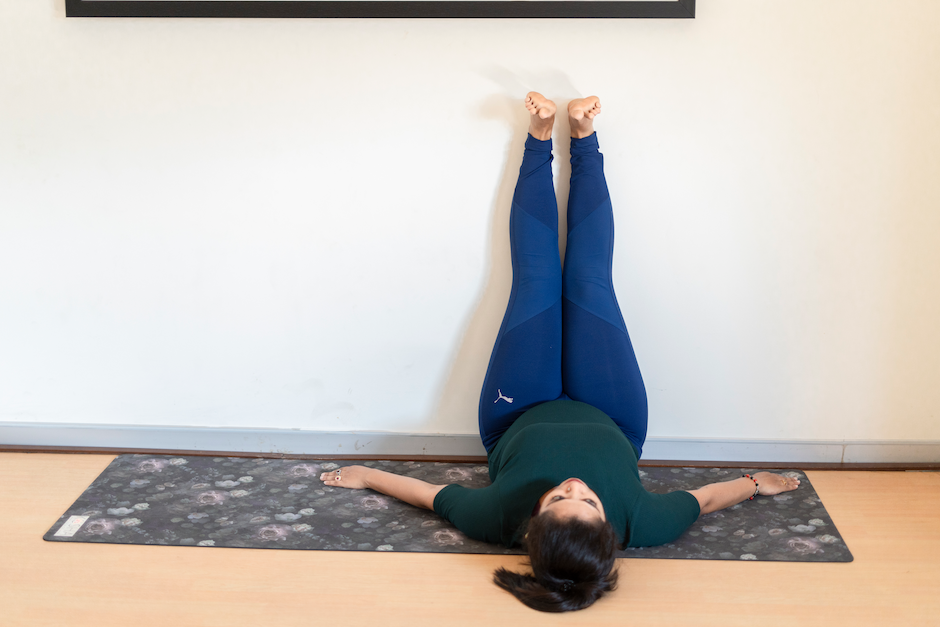
Place a folded blanket parallel against a wall. Sit sideways in the middle of the blanket, and turn yourself toward the wall, lifting your legs up and propping them against the wall. Lay back comfortably, rest your head and neck on the floor, and fully straighten your legs. Spread your arms out to your sides with your palms facing up. Allow your chest, abdomen, and pelvis to completely relax. Breathe evenly and mindfully while holding this pose for 5-8 minutes.
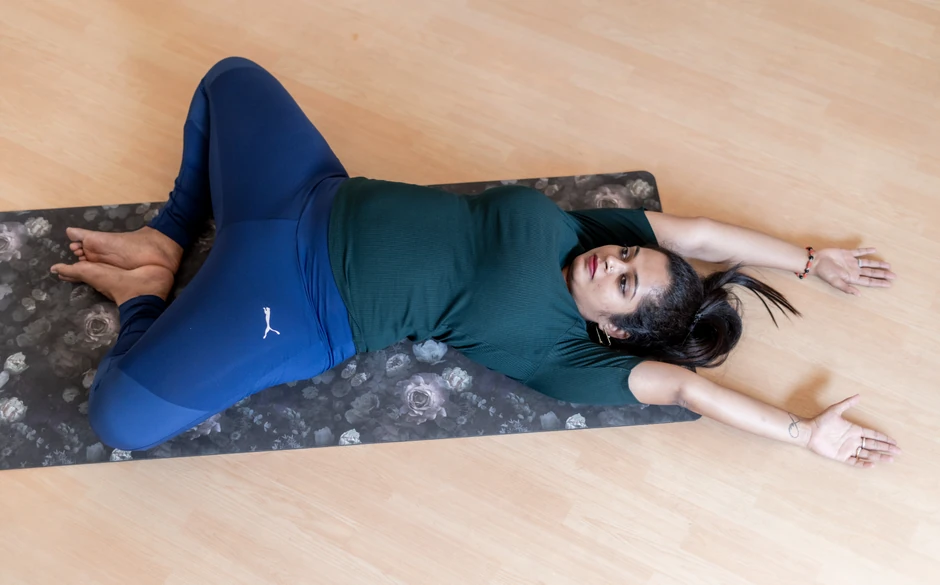
Lie down on your yoga mat with your knees bent and the soles of your feet pressed against each other, allowing your legs to open and rest at your sides. With your spine straight, rest your hands on your stomach, pelvis, or at your sides, while allowing your hips and pelvic floor muscles to relax and open. Hold the pose for 1-2 minutes.
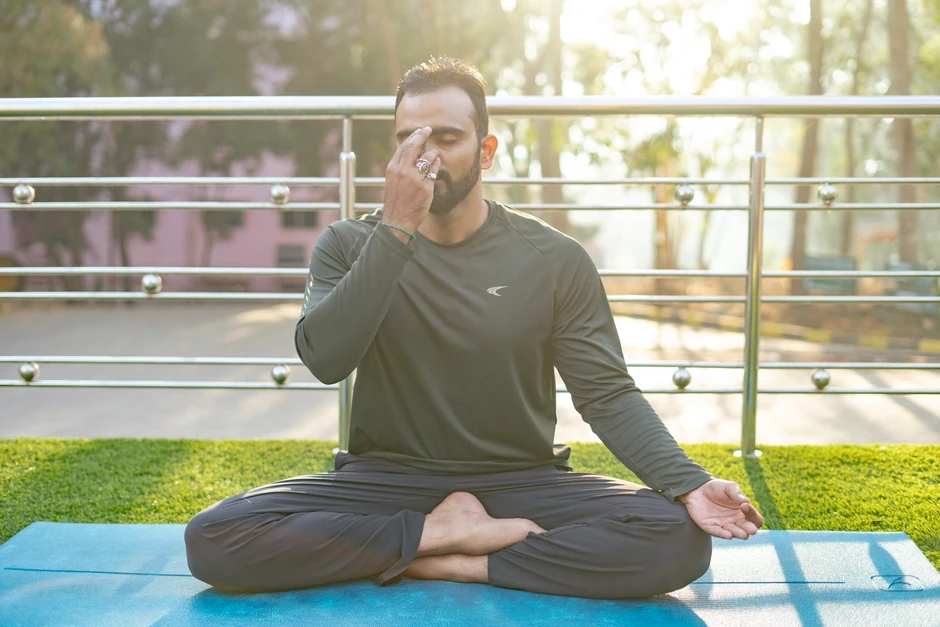
Sit in a relaxed posture, like Easy pose or in a comfortable chair. Exhale completely, and then place your right index finger onto your right nostril, and breathe deeply in through the left. Alternate and place your thumb over your left nostril, and exhale through your right. Continue alternating, repeating at least 10 times.
While sitting in a relaxed posture, roll your tongue and slowly breathe in through it, as if your tongue were a straw. Hold it in for several seconds, then exhale through your nose. Repeat.
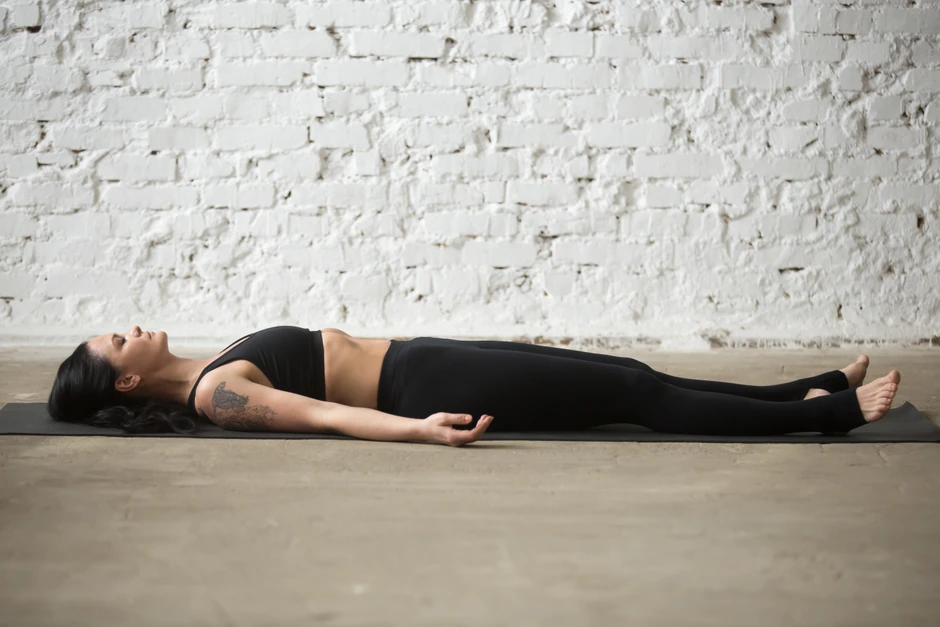
Sit on your yoga mat and lower your body to the floor, relaxing your legs and letting your arms rest on the floor at your sides, palms up. Keep your eyes closed and focus on your breathing. Relax the muscles in your face and neck, and visualize every part of your body letting go of all tension. Hold this pose for 5-7 minutes.
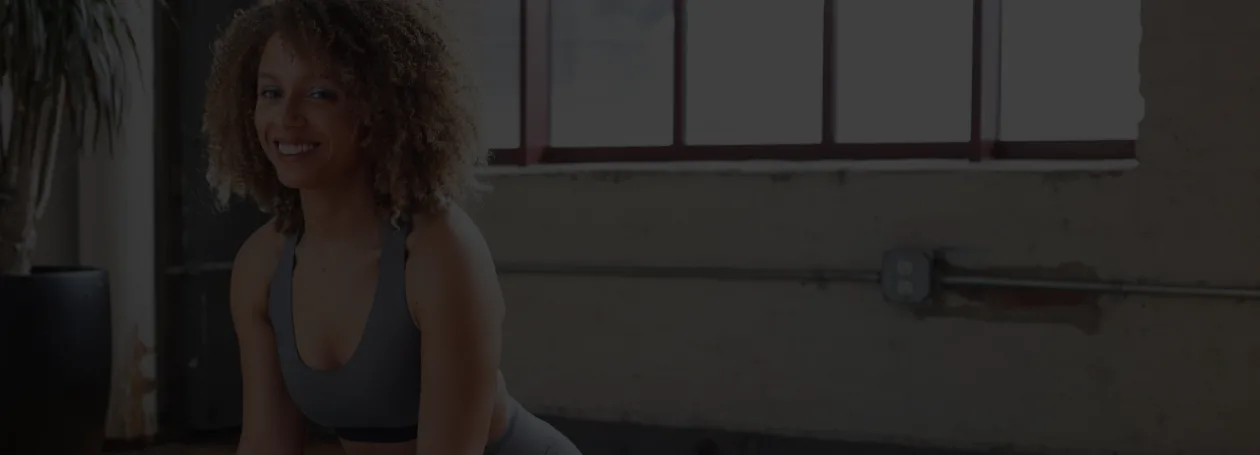
Receive personalized guidance tailored to your unique fitness goals, live with a dedicated coach—no credit card required.